from 0 review
1 Day
English, Urdu
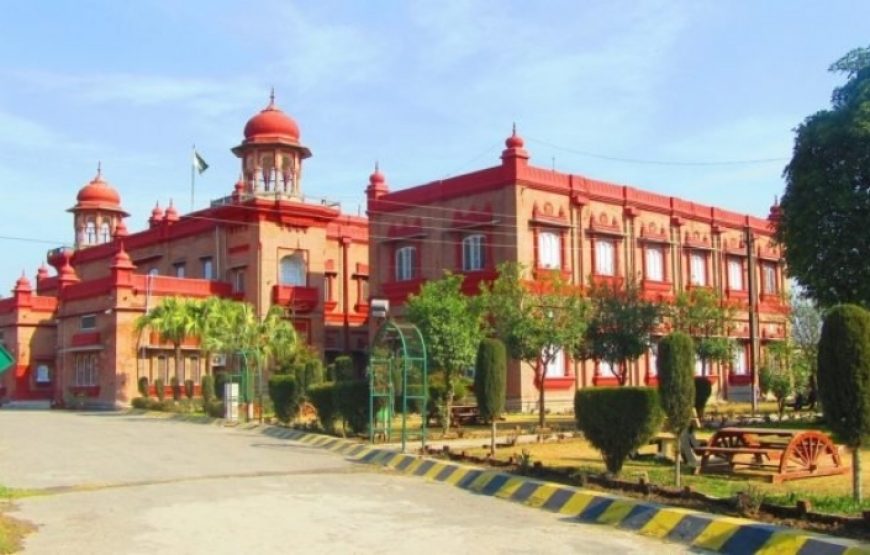
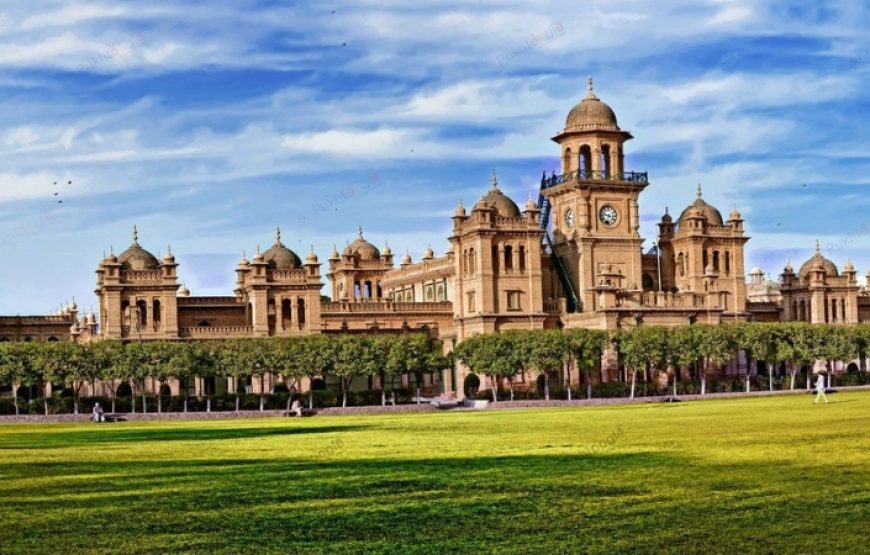
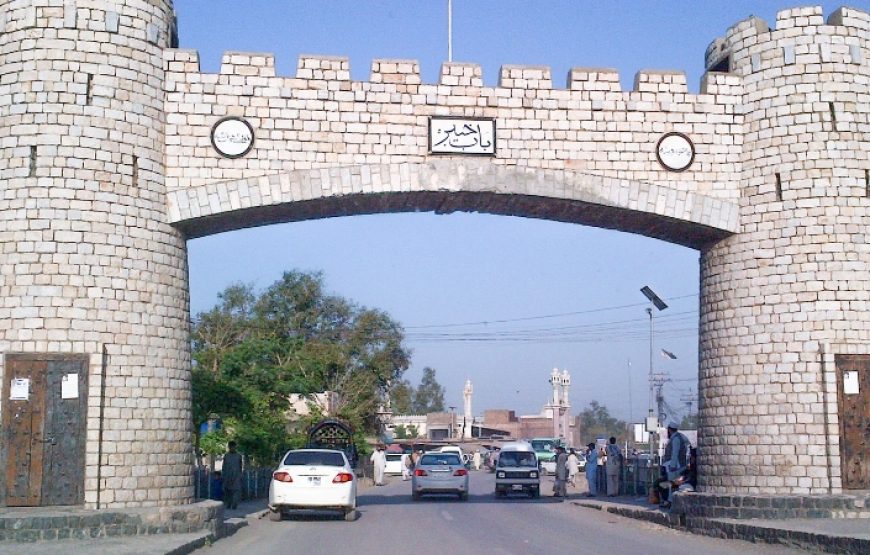
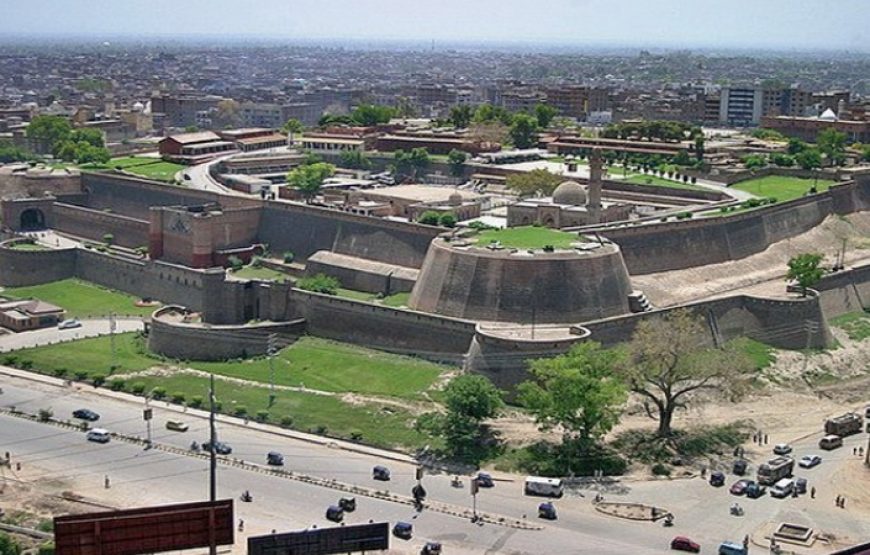
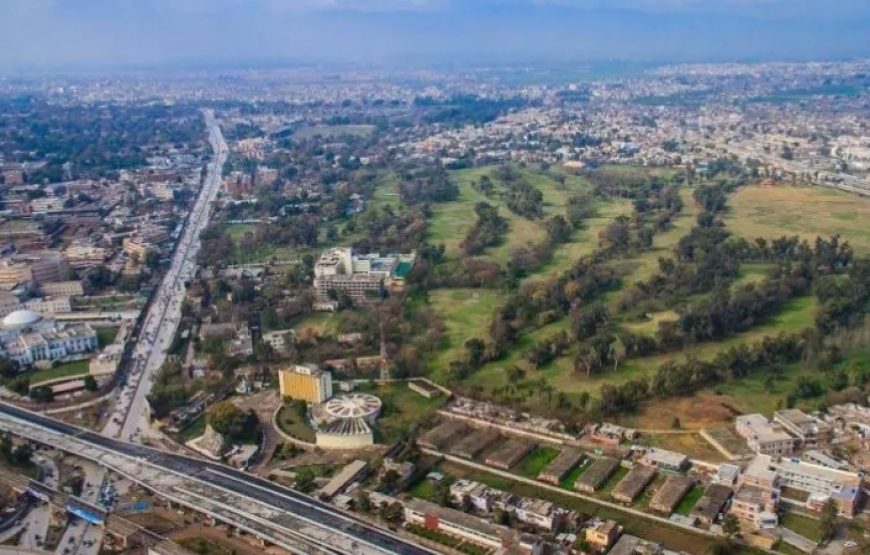
Nestled in the northwestern frontier of Pakistan, Peshawar is one of South Asia’s oldest living cities, a vibrant mosaic of history, culture, and tradition. With roots stretching back over 2,000 years, it has witnessed the rise and fall of empires—from the Achaemenids and Kushans to the Mughals and the British Raj. Once a vital stop on the ancient Silk Road, Peshawar continues to be a melting pot of civilizations and a gateway to Central Asia. A Peshawar city tour explores its prime attractions.
The city’s rich architectural heritage is exemplified by the Mahabat Khan Mosque, a 17th-century Mughal marvel with intricate tile work and towering minarets. The historic Qissa Khwani Bazaar, or “Storytellers’ Market,” evokes a bygone era when travelers and merchants exchanged tales over cups of steaming green tea. Stroll through the narrow alleys and you’ll find vibrant bazaars filled with handcrafted jewelry, intricate fabrics, and Peshawari chappals—offering an unforgettable shopping experience.
Peshawar’s culinary landscape is just as captivating. Renowned for its hearty, meat-rich dishes like chapli kebab, mutton karahi, and Kabuli pulao, the city also boasts traditional sweets like halwa and sheer khurma. Whether at a roadside dhaba or a historic food street, the flavors of Peshawar tell their own story.
The people of Peshawar—primarily Pashtuns—are known for their legendary hospitality, pride in cultural identity, and deep-rooted traditions. Their music, dance, poetry, and dress reflect a centuries-old heritage that continues to thrive.
Tourists are drawn not only to Peshawar’s vibrant life but also to its archaeological treasures, including the Peshawar Museum, home to one of the world’s largest collections of Gandhara Buddhist art. Nearby sites like the Bala Hisar Fort and Jamrud Fort speak to the city’s strategic importance over millennia.
Today, Peshawar stands as a living archive of the subcontinent’s past and a captivating destination for those seeking history, flavor, and authenticity. With its fusion of ancient charm and dynamic present, Peshawar is not just a city—it’s an experience waiting to be discovered. Enjoy your Peshawar city tour for lasting memories of this amazing city.
One of the most iconic places in Peshawar, Qissa Khwani Bazaar—meaning “Storytellers’ Market”—has long been a hub of culture and commerce. Historically, it served as a meeting place for traders and travelers who exchanged tales over cups of kehwa (green tea). Today, it remains a bustling market full of life, selling everything from spices and dry fruits to traditional clothing and antiques.
This 17th-century Mughal-era mosque is a stunning example of Islamic architecture. Built during the reign of Emperor Shah Jahan, it features elegant white marble, detailed frescoes, and beautifully balanced minarets. It stands as a serene contrast to the energetic city around it and offers spiritual calm and architectural awe.
Famed for its world-class Gandhara art collection, the Peshawar Museum offers deep insight into the Buddhist and ancient history of the region. Its exhibits include sculptures, coins, manuscripts, and relics from various civilizations that once flourished in this region, including Indo-Greeks, Kushans, and Mughals.
Perched at the western edge of the city, Bala Hisar Fort is a historic stronghold that has guarded Peshawar for centuries. Originally built by the Mughals and later fortified by the Sikhs and British, the fort offers panoramic views of the city and the surrounding hills. It’s a symbol of the city’s strategic importance through the ages.
Located in the old city, Sethi House is a preserved 19th-century mansion that showcases the exquisite craftsmanship of Central Asian-influenced architecture. The carved wooden balconies, colorful stained-glass windows, and decorative courtyards offer a glimpse into the lavish lifestyle of the merchant elite of that era.
Ander Shehr (“Inner City”) Market and the adjacent Sethi Street offer an immersive experience of traditional Peshawari life. These narrow lanes are lined with old houses, shops selling handcrafted items, traditional fabrics, carpets, and herbal medicines, making them a paradise for cultural explorers and photographers.
This historic monument, located in the heart of the old city, is a popular meeting point and a tribute to the heroes of Pakistan’s independence movement. Surrounded by narrow lanes filled with shops and food stalls, it is a lively spot reflecting the soul of Peshawar.
This ancient archaeological site is layered with history dating back to the Indo-Greek period. Once a Buddhist monastery and caravanserai, Gor Gathri later became a Mughal-era complex and British fire brigade station. Its excavated remains, historic structures, and archaeological museum provide insight into Peshawar’s evolution over two millennia.
Built in 1900 to mark Queen Victoria’s Diamond Jubilee, this red-brick British-era clock tower in the heart of Peshawar stands tall as a colonial relic. Known locally as Ghanta Ghar, it’s surrounded by a lively market and remains an important city landmark and meeting point.
A symbol of academic excellence and colonial-era architecture, Islamia College was established in 1913 and played a vital role in the Pakistan Movement. With its imposing domes, minarets, and spacious lawns, it remains one of the most photographed and prestigious landmarks in Peshawar, blending Islamic and British architectural styles beautifully.
Located at the entrance of the historic Khyber Pass near Jamrud, the Bab-e-Khyber is an iconic gateway symbolizing Peshawar’s historic role as the “Gateway to Central Asia.” It is not just a monument but a powerful representation of the region’s strategic significance throughout history.
Built by the Sikhs in the early 19th century, Jamrud Fort stands at the mouth of the Khyber Pass. The fort is tied to key battles and historical figures like General Hari Singh Nalwa and still reflects the military legacy of the region.
A trip to Peshawar is incomplete without savoring its legendary food. Charsi Tikka, located near Namak Mandi, is world-famous for its juicy, freshly cooked mutton tikka grilled on open coals. Pair it with naan and green tea for a hearty meal. Other culinary delights include Kabuli pulao, chapli kebab, and karahi—cooked with a Pashtun touch that makes Peshawar a food lover’s dream.
Peshawar is renowned for its handicrafts, gemstone jewelry, dry fruits, spices, embroidered shawls, and iconic Peshawari chappals. Markets like Qissa Khwani Bazaar, Karkhano Market, and Saddar offer authentic and affordable shopping experiences with a traditional flair.
Thoughtful thoughts to your inbox